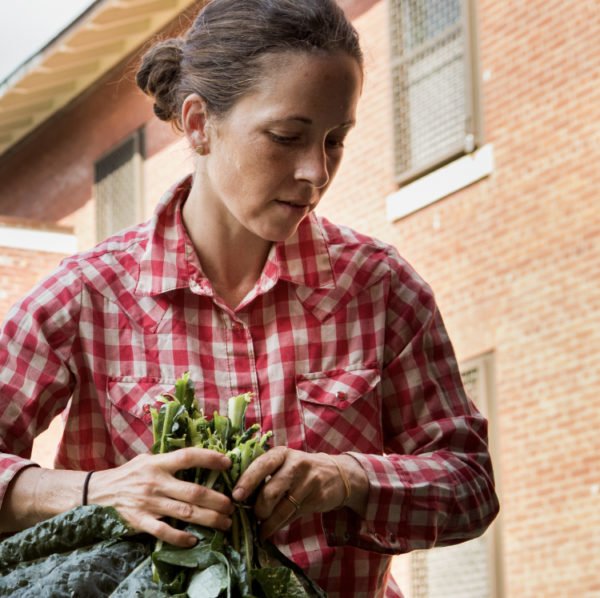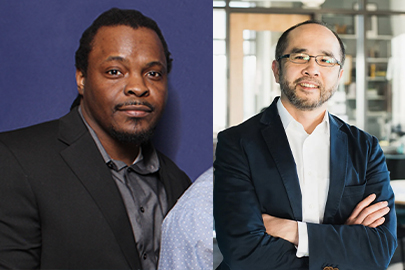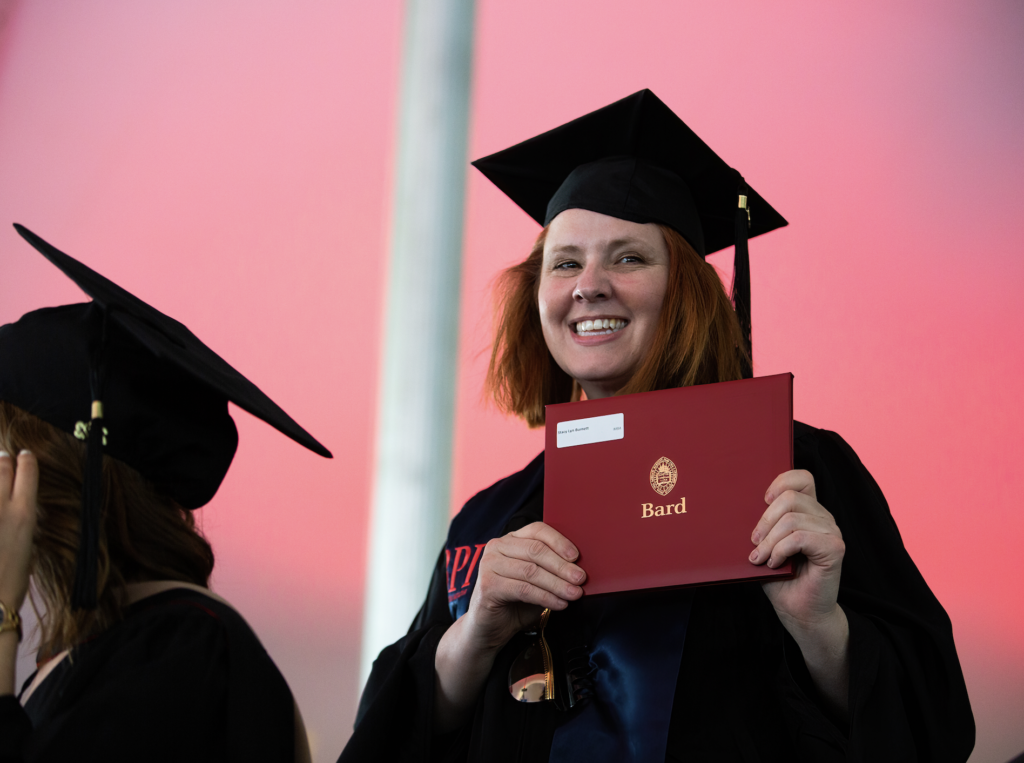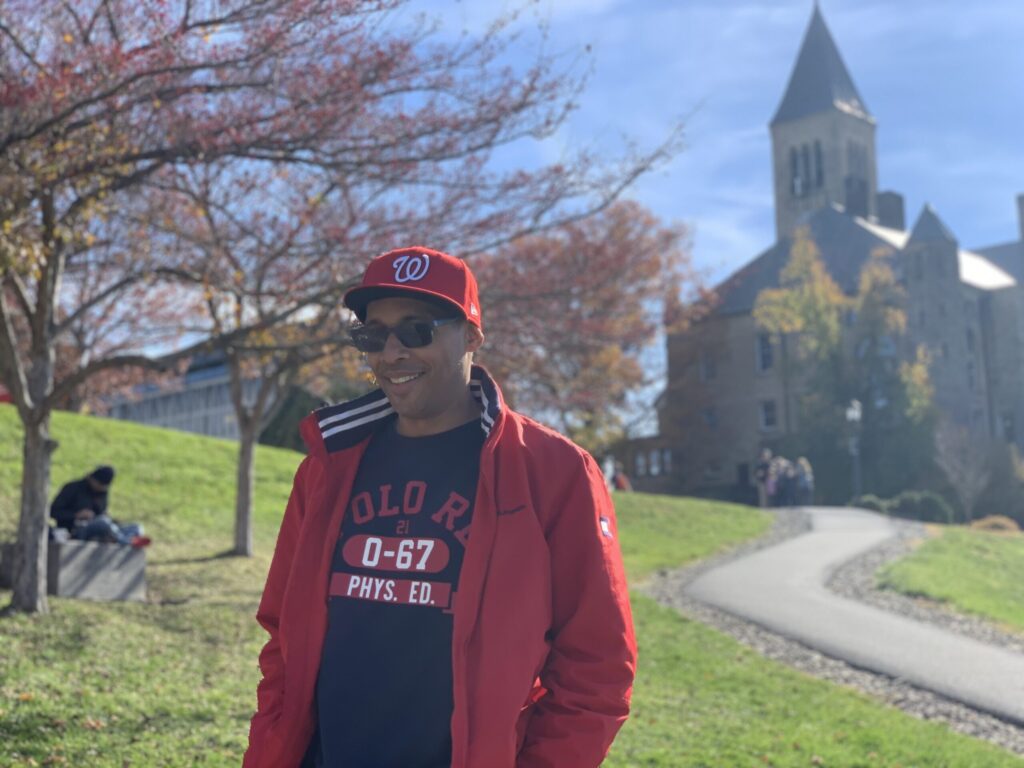This reflection by Jocelyn Apicello, Faculty Advisor in Urban Farming & Sustainability, is part of the Community Voices op-ed series for the BPI Public Health Journal. Through the COVID-19 crisis, BPI alumni, staff, and faculty will be posting reflections about their work and response to the virus here on the BPI Blog.
After this shock of the COVID-19 pandemic to our daily lives, we will regenerate. There are hopeful signs of re-growth and solidarity around every corner.
One of these signs of regeneration is the uptick of folks turning to something we humans do well: growing our own food. I have heard from city folks planting scallions, cilantro, and basil in their kitchens. I have heard of suburban households planting potatoes in a garbage bin. I have seen local food producers launch into action to ramp up growing capacity so they can supply more to their neighbors and markets.
Preventing hunger and undernutrition is of deep concern. In NYC, for example, Mayor de Blasio has appointed a “food czar,” whose job is to make sure no New Yorker goes hungry. And NYC’s closed schools are supplying free meals to all NYC residents. Adults with children will be given free meals from 7:30-11:30 am and adults without children can now also get free meals from 11:30-1:30 pm. (NYCers: To find a school in your area distributing food, call 311, check NYC.gov or text the word FOOD or COMIDA to 877-877 to find a location near you.)
In other places, folks have set up Mutual Aid Networks – like the Hudson Valley Mutual Aid Network, spearheaded by BPI’s own Alex Pearl, along with Kwame Holmes – comprising local community members collaborating to share knowledge, resources, and volunteer power during times of crisis.
And, Mother Nature is not isolating. She has burst forth her daffodils, forsythia and pear blossoms to provide us with something beautiful to look at, even if from our windows. And she has deployed her earliest edible wild greens to nourish us – sorrel, chickweed, dandelion and garlic mustard.
While the outside world soldiers on, each of us is now grappling with what to do in our own homes during this pandemic. Staying healthy is likely at the top of everyone’s list – and food is medicine. What can you do, right now, to improve your personal nutrition?
- Eat fresh, whenever you can. Fresh produce is still available in markets and can also be purchased through online delivery services (e.g., Fresh Direct, Instacart, My Bodega Online).
- Stock up on fresh produce that you can store for longer periods of time, mostly root vegetables: carrots, beets, parsnips, radish, turnip, rutabaga, as well as onions and garlic (not root vegetables, but they do store well).
- Be sure all of your greens are completely dry and store them in an open bag (not tightly closed in plastic) before storing in your refrigerator. Some greens will last for several weeks this way.
- Keep some canned and/or frozen vegetables on hand.
- Eat herbs and spices, as much as you can. These are ancient healers and immune boosters, particularly ginger, garlic, cinnamon powder, cayenne powder, and all Italian herbs.
- Make a salad dressing with these immune-boosting ingredients: honey and apple cider vinegar.
- Sprout something. You can sprout your dried lentils or most dried beans (not kidney!) for a more nutritious and digestible food. There are lots of tips for safe sprouting, and the only things you need are a clean jar, a piece of glass to cover the jar, a rubber band to secure the cloth and the “seeds” to sprout.
- Forage for some dandelion greens or garlic mustards. But forage safely: maintain social distancing guidelines, practice safe personal hygiene, thoroughly wash whatever bounty you take home and be sure you correctly identify the greens.
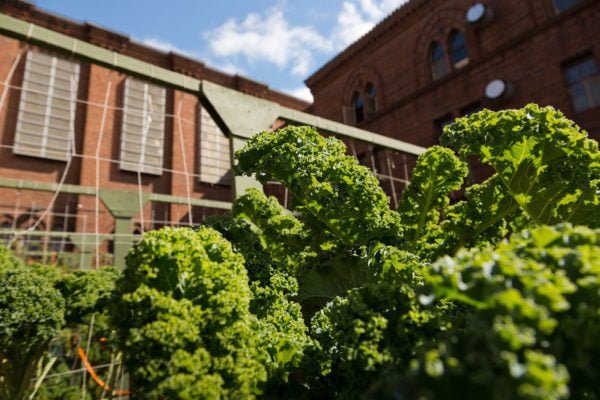
Woodbourne Garden
How can you plan for several months ahead?
- Research the ancient practice of fermentation. You can take fresh produce now – like cabbage, carrots, cucumbers – and make it last for months.
- Buy seeds now. There are many online resources, and while some are selling out or pausing sales for brief periods due to a huge rush in orders, they will be available again soon. Did you know?… seeds are a purchasable item if you participate in the SNAP program.
- Save seeds from your uncooked tomato, pepper or cucumber and try planting these, too.
- Plant seeds according to the packet instructions in some soil in a container (any container can do, an old yogurt container, egg cartons, old clamshell packaging that your berries come in, etc.), keep moist and put in a sunny spot.
- Research community gardens near your home. Once it is safe for them to open back up again, volunteer with them. An important element of our collective regeneration will be strengthening our local food systems.
Equity and Regeneration
Access to nutritious food is critical always, and even more so during a pandemic. Let’s support each other and especially those that are growing, packing, stocking, shipping, cooking and delivering our food. Many folks in the BPI community are these essential food workers, or have family members who are.
Our food system has a lot to reckon with as we weather this pandemic together. How will it help low-income and non-mobile folks stock up on food? How will it ensure emergency food institutions and sites (e.g., food banks, pantries and soup kitchens) can continue to operate to capacity? Will it be able to employ enough farm and food workers safely, especially as international mobility is compromised? And as more and more people turn to online delivery of food, are there ways to ensure this digital access is equitable? After this storm, I think inclusive, regenerative local food systems, wherever we are and wherever we can grow, will emerge as bedrocks of our communities (as many already are). Stay safe and stay connected.
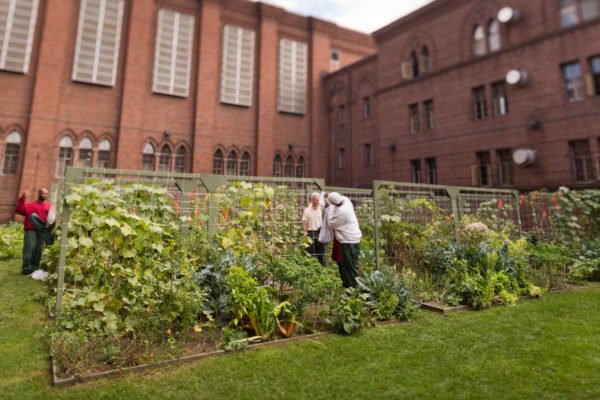
BPI students in the Woodbourne Garden
Jocelyn Apicello is Faculty Advisor for BPI’s Urban Farming & Sustainability program. A member of BPI’s Public Health faculty, she also oversees gardening activities at several correctional facilities. Jocelyn co-owns Longhaul Farm, a micro-farm in the Hudson Valley, and directs the Ecological Citizen’s Project ― both projects are partnerships with her husband, Jason Angell. Jocelyn earned her DrPH at Columbia’s Mailman School of Public Health, researching gentrification in New York City and its influence on the habitats of New Yorkers.
